Synergy via Amazon has
Milwaukee M18 FUEL Mid-Torque 3/8" Impact Wrench (Tool Only, 2960-20) on sale for
$146.
Shipping is free.
Thanks to Community Member
FairStraw7272 for finding this deal.
Product Details:- Best power to weight ratio is offered as the tool provides 600 ft-lbs. of nut-busting torque at only 5.0 lbs. with a 5.0Ah battery.
- 6.0" in length provides most access in tight spaces
- Tri-LEDs deliver high definition lighting to increase workspace visibility with less shadows
- 4-Mode DRIVE CONTROL provides greater control over output speed and power. Includes auto shut-off and bolt-removal mode
- Auto shut-off mode prevents over tightening and increases productivity by applying no more than 35 ft-lbs. of torque.
- Bolt-removal mode offers more control after bolt breakaway as RPMs drastically slow down once the bolt is loosened.
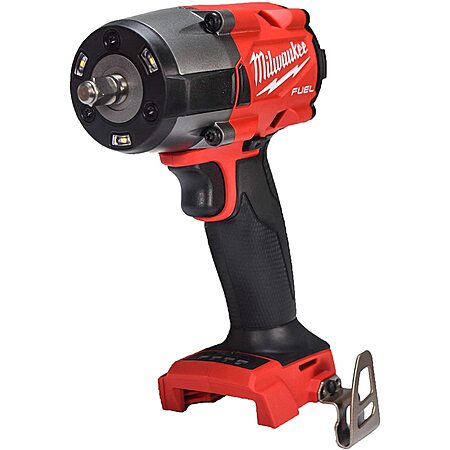
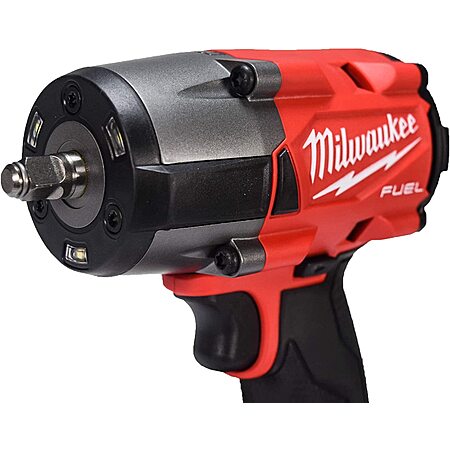
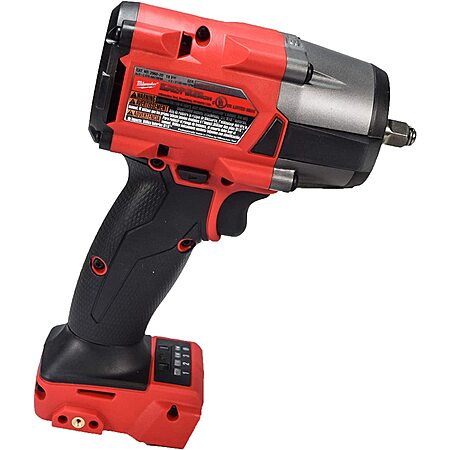
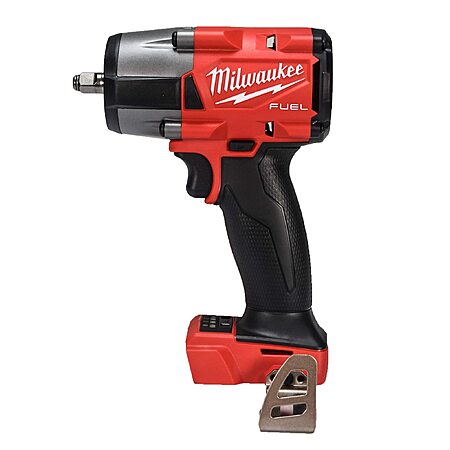
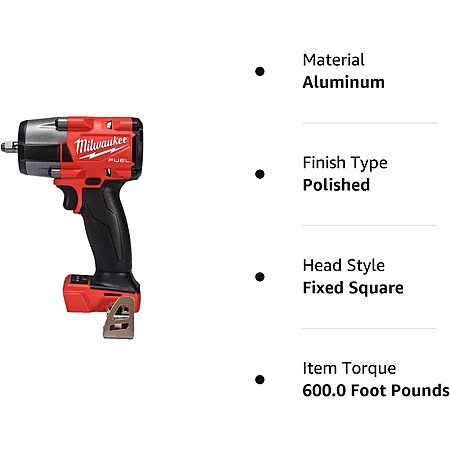
Leave a Comment
Top Comments
My use case is strictly homeowner working on his own cars or light assembly.
Reviews [youtube.com] show it breaking bolts torqued to 600/ft lbs so unless you're a heavy line mechanic or need to work on farm equipment the 3/8 has plenty of power, is lighter and gets into tighter spaces. Lug nuts on passenger cars and trucks should be no challenge.
If you don't get batteries free from work (heh) be sure to get the lighter, more powerful High Output CP3.0 [milwaukeetool.com] with 21,700 cells (defined by its 21mm x 70mm size.)
Here's the slightly overbearing VCG Construction [youtube.com] guy to explain why.
If you're only looking to do tire rotations, oil changes and the occasional brake pad/rotor replacement, then it doesn't really matter so might as well get this and be covered for basically all situations (on cars, not trucks). But if you're going to be doing a lot of wrenching, repairs, restoration, maintenance, etc., then you'll definitely appreciate and prefer the M12 stubby over this and basically anything. There's literally nothing out there of comparable power that's as small and light.
79 Comments
Sign up for a Slickdeals account to remove this ad.
Nvm delete, 1/2 in is better for lugnuts
Nvm delete, 1/2 in is better for lugnuts
Our community has rated this post as helpful. If you agree, why not thank Mr.Greg
Our community has rated this post as helpful. If you agree, why not thank razed by wolves
My use case is strictly homeowner working on his own cars or light assembly.
Reviews [youtube.com] show it breaking bolts torqued to 600/ft lbs so unless you're a heavy line mechanic or need to work on farm equipment the 3/8 has plenty of power, is lighter and gets into tighter spaces. Lug nuts on passenger cars and trucks should be no challenge.
If you don't get batteries free from work (heh) be sure to get the lighter, more powerful High Output CP3.0 [milwaukeetool.com] with 21,700 cells (defined by its 21mm x 70mm size.)
Here's the slightly overbearing VCG Construction [youtube.com] guy to explain why.
Sign up for a Slickdeals account to remove this ad.
Our community has rated this post as helpful. If you agree, why not thank KMan
If you're only looking to do tire rotations, oil changes and the occasional brake pad/rotor replacement, then it doesn't really matter so might as well get this and be covered for basically all situations (on cars, not trucks). But if you're going to be doing a lot of wrenching, repairs, restoration, maintenance, etc., then you'll definitely appreciate and prefer the M12 stubby over this and basically anything. There's literally nothing out there of comparable power that's as small and light.
Use an adapter where you can. If you need max power (adapters will rob some) or need to fit into tight spaces where an adapter would be problematic, then it might make sense to get one of these -- or the M12 stubby.
Sign up for a Slickdeals account to remove this ad.
Leave a Comment